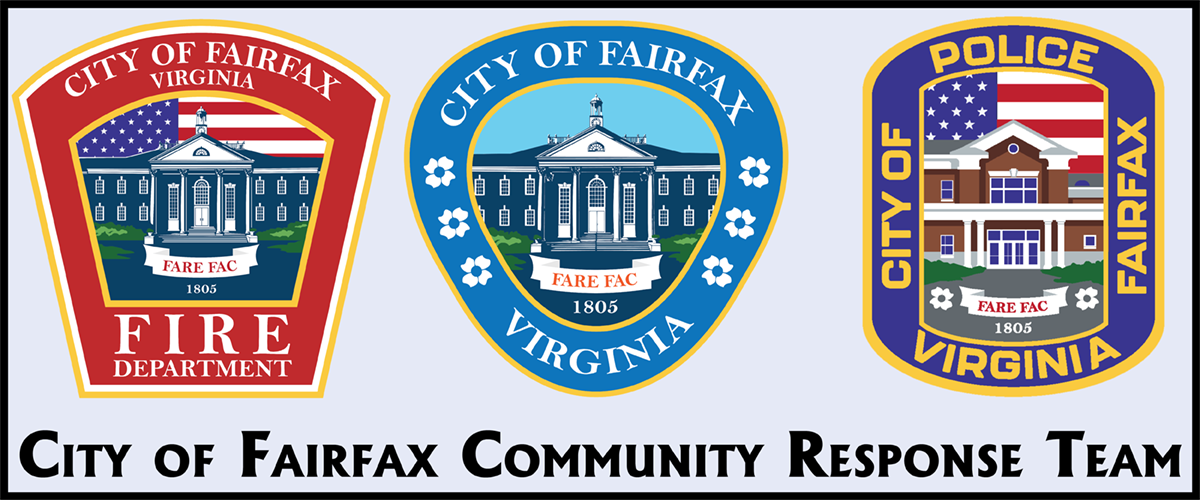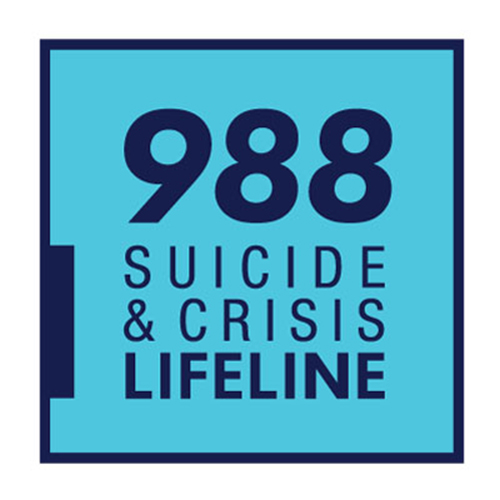Community Response Team (CRT)

The number of people experiencing mental health crises has increased exponentially in recent years, crossing age, race, gender, and socioeconomic lines.
People need extra resources — and Fairfax City has created a Community Response Team (CRT) to provide behavioral health responses to behavioral health emergencies.
CRT — a collaborative effort between the city fire, police, and human services departments — will provide specialized rapid responses to behavioral and mental health emergencies for those experiencing crisis related to mental health, substance use, or developmental disabilities.
The team will address and follow up on behavioral health incidents; provide assistance identified by 911, 988, and public safety dispatch as needing CRT outreach; connect clients to available human services; initiate contact, as needed; and work to build trust and rapport with the community.
The team will activate during normal business hours on weekdays, as needed, through the emergency response system.
Fairfax County Community Services Board will continue to provide access to mobile crisis response at other times, as will regional mobile crisis providers.
The community may continue to use the Merrifield Crisis Response Center (8221 Willow Oaks Corporate Drive, Fairfax, VA 22031; 703-573-5679, 711 TTY).
Contact Us
Community Response Team
703-385-7894
Email CRT: CommunityResponseTeam@fairfaxva.gov
CRT Program Manager: Lesley Abashian
Goals
The goals of the Community Response Team are to:
- Support a specialized response from law enforcement and emergency medical services when answering behavioral health crisis call.
- Increase opportunities for connecting lower-risk behavioral health calls to 988, the 24-hour clinically staffed regional call center.
- Decrease the need for involuntary hospitalizations through use of de-escalation techniques and real-time assessment, triage, and service referral.
- Provide both targeted and post-crisis community outreach to city residents at increased risk for future episodes of behavioral health crisis or heightened health-safety concerns.
This program aligns with Marcus Alert, a state-legislated system for improving response to mental and behavioral health crises in Virginia. Marcus Alert was named after Marcus-David Peters, a 24-year-old teacher who was killed during a mental health crisis in 2018 in Richmond, Va.
About the CRT
The Community Response Team is a specialized, multi-disciplinary team that can provide both real-time behavioral health crisis response along with targeted outreach, post-crisis follow-up, and short-term case coordination.
Team members include:
- a community paramedic who also contributes to wider community risk reduction efforts (such as fall reduction)
- a community response clinician to identify a situation’s crisis level and needs
- specially trained police officers to provide de-escalation and stabilization
These team members will activate normal business hours on weekdays, as needed, through the emergency response system.
Fairfax County Community Services Board will continue to provide access to mobile crisis response at other times.
Triage Framework for Crisis Response
This framework establishes a shared language that will be used across the crisis response system.
There are four levels of response to service calls for help: routine, moderate, urgent, and emergency.

Commonwealth of Virginia Marcus Alert System Triage Framework
- Involve behavioral health as soon as possible (Levels 1-4)
- Behavior Health Remote Engagement During Transition as possible (Levels 2-4)
- Assess need for medical response (Levels 3-4)
Level 1: Routine
911 PSAPs refer to 988 regional call centers
- Distressed caller appropriate for phone intervention with trained behavioral health professional with referrals for services within 72 hours
- No homicidal thought, intent, or behavior
- Suicidal thoughts acceptable, if no plans or means
Level 2: Moderate
- Distressed caller with imminent need of in-person behavioral health support
- No homicidal thoughts, intent, or behavior
- Suicidal thoughts with no plan or no direct access to lethal weapons
- Minor self-injurious behavior
Level 3: Urgent
- Active aggression
- Florid psychosis
- Homocidal thoughts with no active behaviors or intent
- Active cutting (self-injurious behavior) with concern for medial risk
- Suicidal thoughts with plans and access to lethal weapons
- Magistrate-issued emergency custody order, if available and requested by law enforcement
Level 4: Emergency
911 PSAPs dispatch law enforcement, EMS, and/or fire without delay
- Direct, immediate threat to life
- Active suicide attempt
- Active assault on others with ability to cause significant harm
- Any gun present and accessible
- Magistrate issued emergency custody order issued with immediate security threat
Resources for Help: 988 and 911
Two resources are available during crisis 24/7/365 via call, text, or chat.
988 is the national suicide and crisis lifeline answered by regional crisis call center. This lifeline provides:
- Someone to call: staffed by crisis workers, clinicians and supervisors, and emergency communicators.
- Someone to respond: mobile crisis teams, rather than law enforcement, whenever possible — and trained law enforcement offices when needed.
- A safe place for crisis care, such as crisis stabilization units, crisis receiving centers, crisis respite, and crisis residential.
911 is the public safety and medical emergency hotline routed to local public safety department.
Calls may be redirected between resources as needed. When the city receives these calls, police dispatch will assess the situation to identify the crisis level and situational needs.


Call, text, or chat 988 if you or someone you know:
- Has persistently depressed mood or anxiety.
- Expresses ideas about self-harm or harming others.
- Has disorganized thoughts.
- Expresses odd or bizarre thoughts.
- Has edgy or nervous behavior that seems out of the ordinary.
- Is seeing or hearing things that are not there.
- Is not able to care for himself/herself because of a mental condition.
 Call or text 911 if you or someone you know:
Call or text 911 if you or someone you know:
- Is violent.
- Is actively harming themselves or others.
- Is threatening to harm themselves or others.
- Has access to a gun.
Related Resources
Below are resources related to the Fairfax City Community Response Team (CRT). Info: lesley.abashian@fairfaxva.gov, 703-385-7894
Sept. 27, 2022, City Council work session
Discussion and update on Marcus Alert legislation and city co-responder team implementation
July 11, 2023, City Council work session
Presentation and Discussion from the city's Community Response Team.
The Marcus-David Peters Act (Virginia Department of Behavioral Health and Developmental Services)